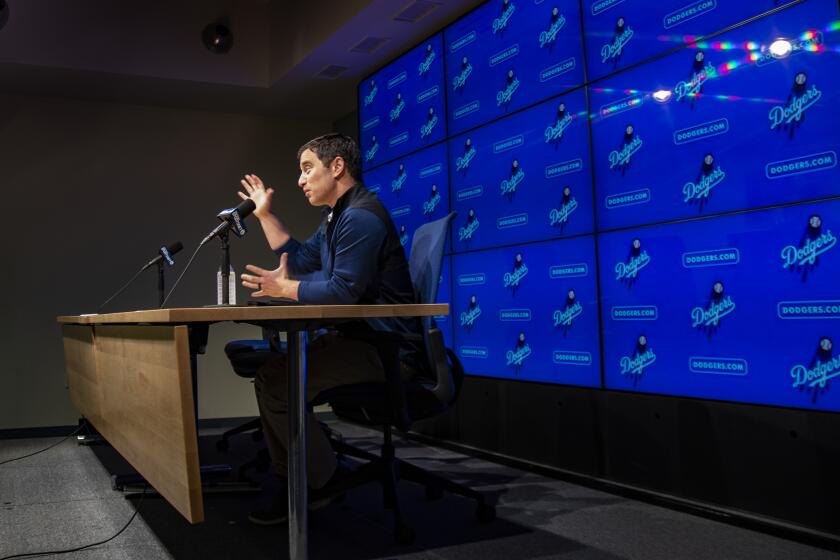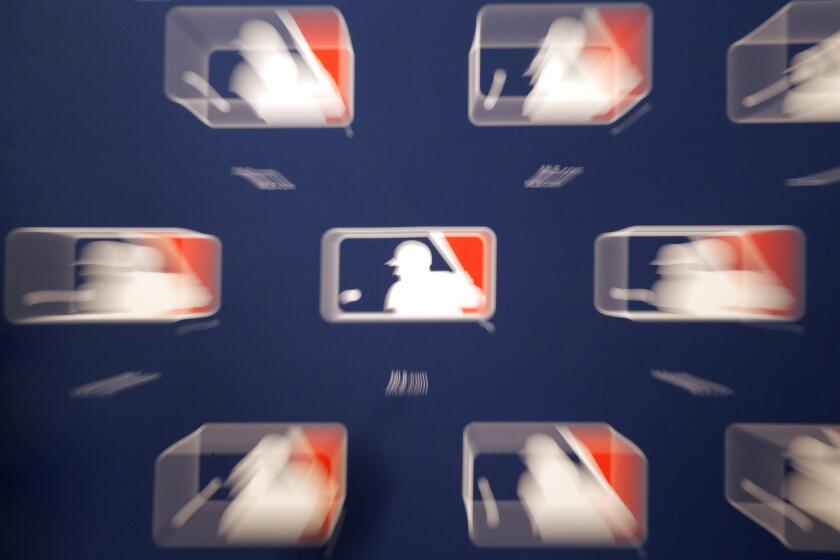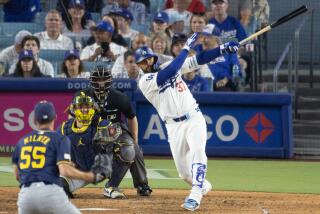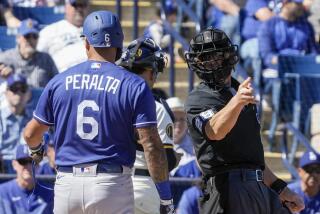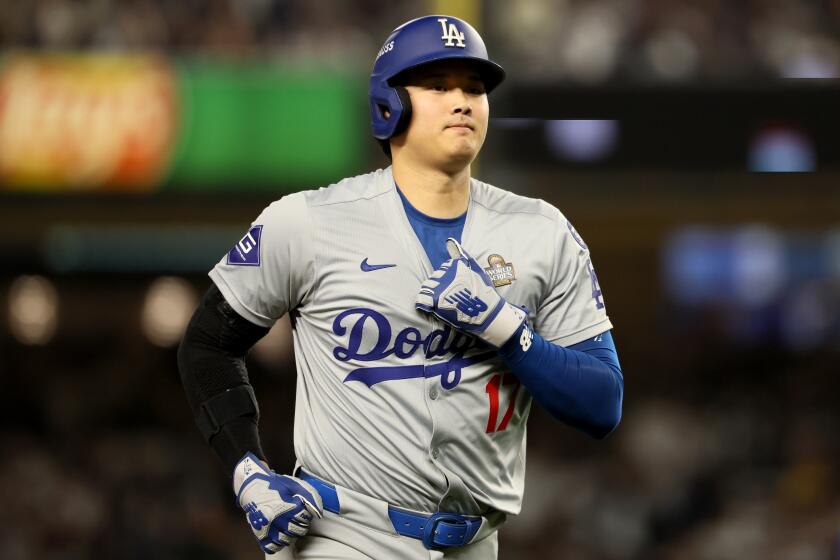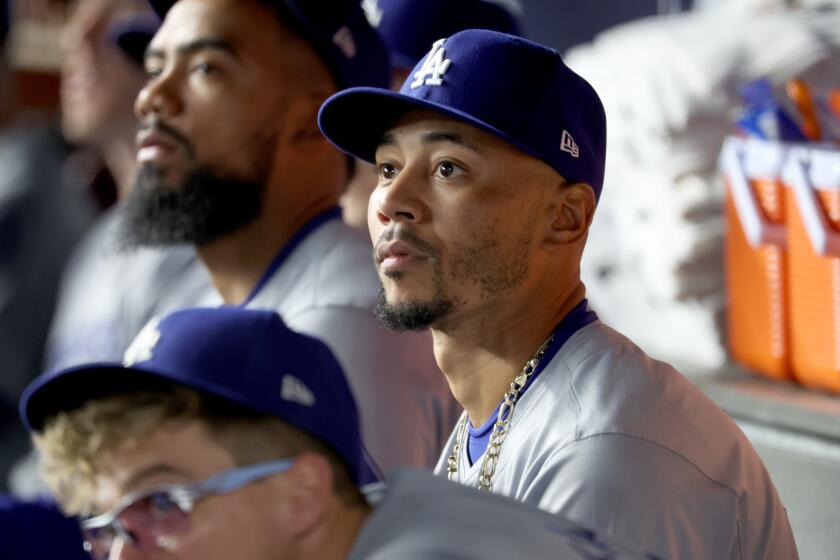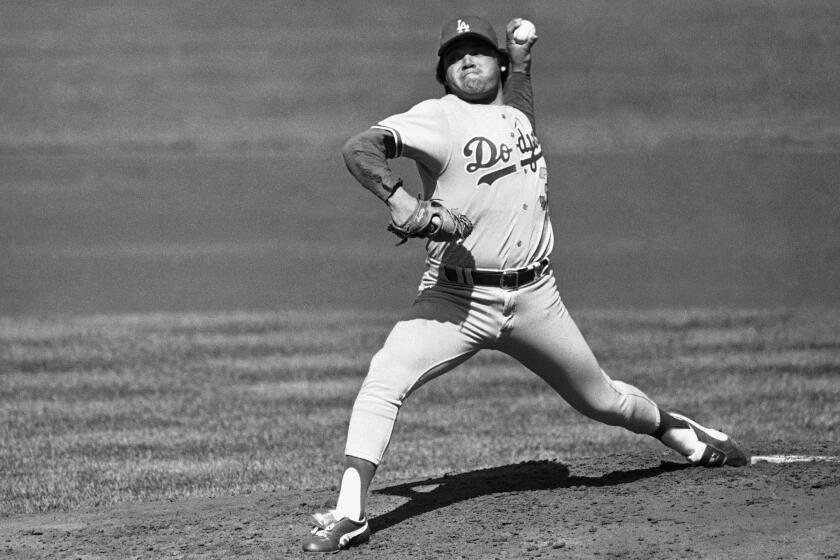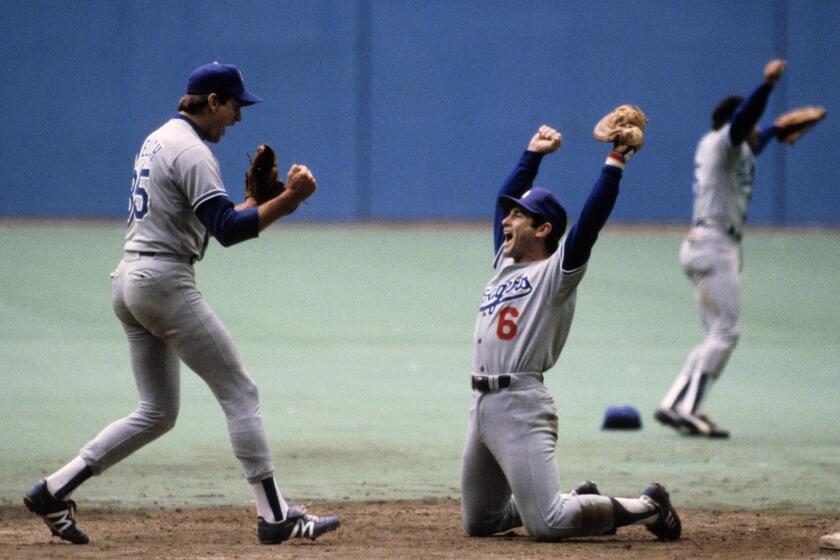Why a coronavirus-shortened MLB season could lead to a National League DH rule
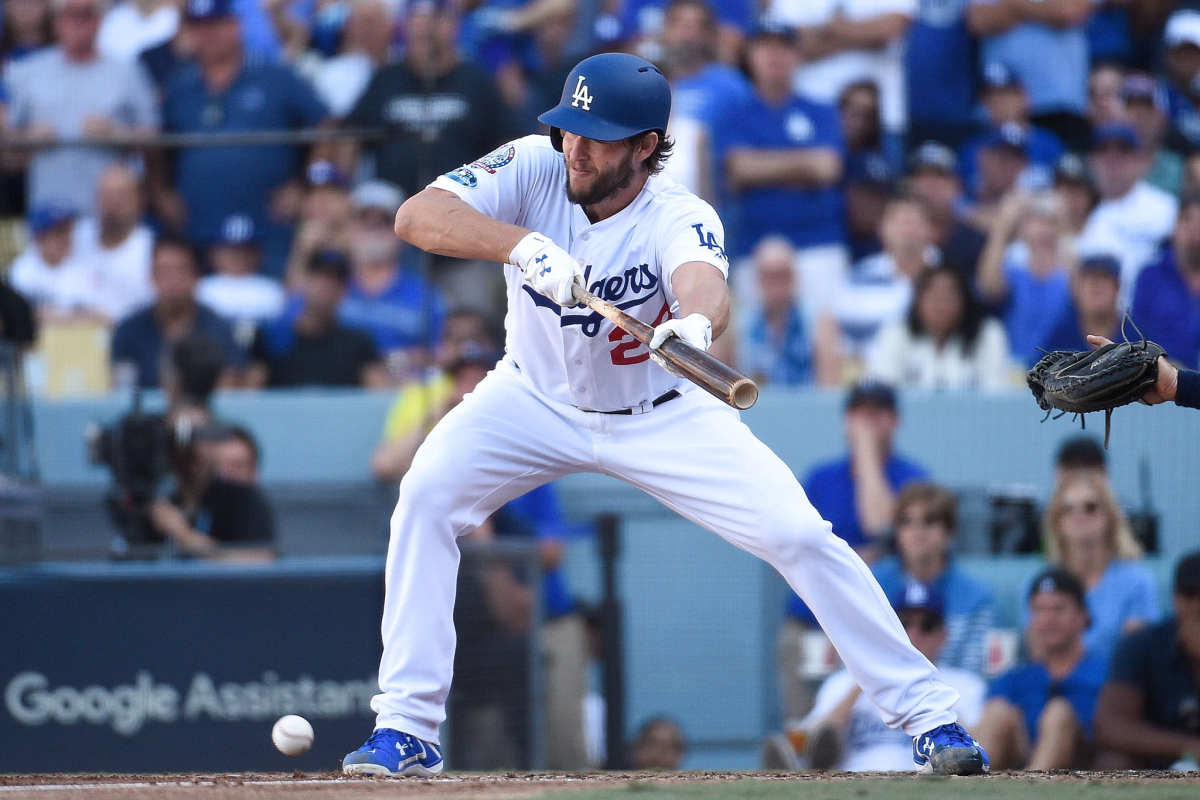
If there is a Major League Baseball season in 2020, various aspects would be different. There definitely would be fewer regular-season games and likely a longer postseason. There wouldn’t be fans in attendance, at least to start. High-fives could be banned.
And the final barrier between the National League and American League likely would be torn down. Temporarily, for now.
If there is a season, MLB is expected to implement the designated hitter across the board — not just for games played at American League ballparks — to alleviate players’ workloads during a sprint to play as many games as possible in a short period of time.
It also could preview a new era.
While the National League would return to letting pitchers take their hacks in 2021, the collective bargaining agreement expires after next season. Those negotiations are expected to be messy and the results are unpredictable, but at least one change is appears on the table: the American League’s exclusive hold on the designated hitter and, with it, the final significant difference between the two leagues.
There are no major holes in the Dodgers’ farm system, so picking for need is a pitfall they can avoid during this week’s coronavirus-shortened draft.
“It’s been homogenizing for a long time,” former Dodgers pitcher and current broadcaster Orel Hershiser said. “The blip on the screen is literally the DH. Other than that, everything is pretty much the same. It might be the last frontier.”
Implementing the designated hitter in the National League isn’t a recent idea. The topic has ebbed and flowed in prominence since the designated hitter debuted in the American League in 1973.
The chief motivation then was to inject the league with more offense to increase attendance. Initially, the spot was typically reserved for an aging slugger and dedicated to one player. Dusty Baker fit the mold late in his career.
The former Dodger outfielder started 27 games as the Oakland Athletics’ designated hitter over his final two seasons in 1985 and 1986 at ages 36 and 37. Ask him and he thinks he could’ve played a few more years as a DH, but Dave Kingman, six months older, was the team’s primary choice.
It was Baker’s only time in the American League as a player. He went on to manage four National League teams before the Houston Astros hired him as their manager in January to shepherd them through the aftermath of their cheating scandal. His time with AL-style baseball has been limited to World Series appearances and interleague play. He believes the DH belongs in the American League — and out of the National League.
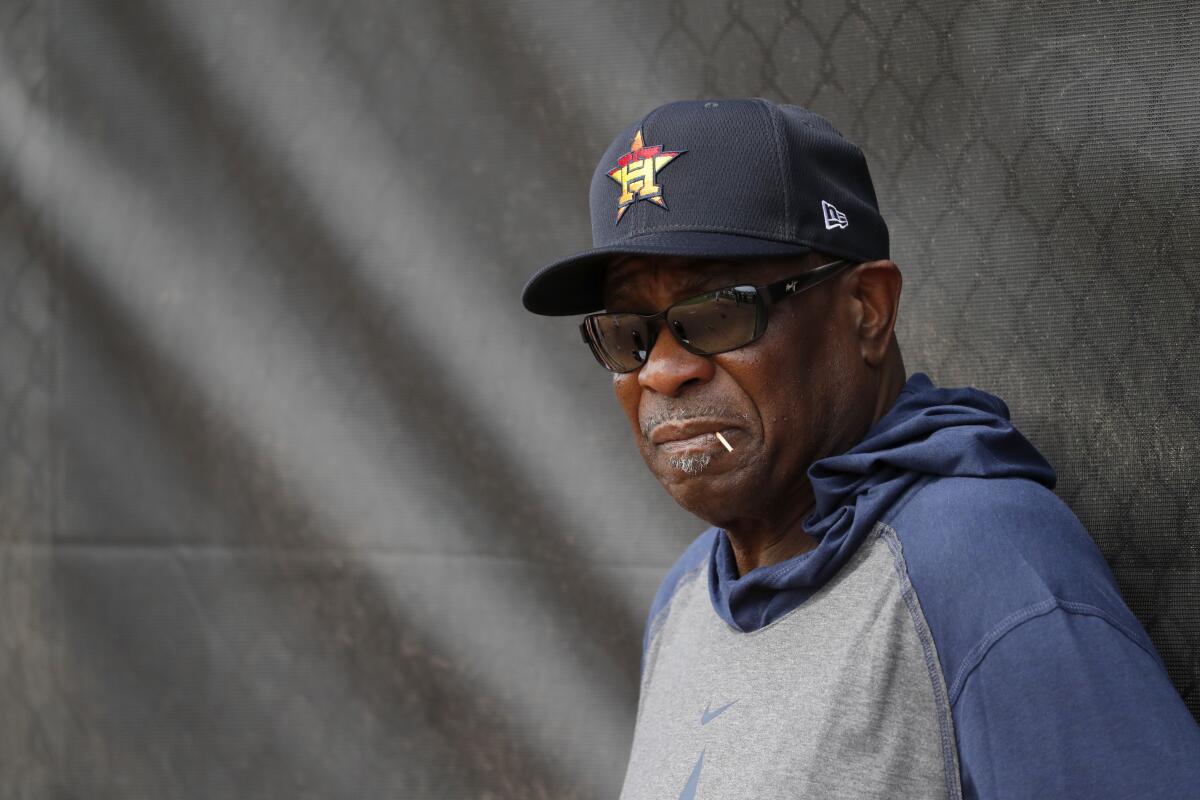
“I think it’s a good idea for this year, but I’m not crazy about it for both leagues,” Baker said. “To me, it’s sending some kids wrong messages about if you don’t have a position, don’t even try, just be a DH. And, to me, you should try to play a position.”
Proponents would counter with several reasons. Starting pitchers can focus on pitching. Managers would have the option of resting important position players without taking their bats out of the lineup or using the spot for players who are weak defensively. Fans no longer could complain about watching an overmatched pitcher flail at the plate. Ultimately, advocates believe games with a DH are more entertaining.
Dodgers manager Dave Roberts oversees a roster that would benefit from the National League implementing the DH in 2020. The lineup features sluggers with defensive deficiencies and the bench is deep with potent bats. Roberts could cycle players through the spot to maximize favorable matchups and rest. The Dodgers are about as built for the DH as a National League club can be in 2020.
But while Roberts is in favor of introducing the DH to the National League this season because of the unusual circumstances, he prefers sticking with tradition beyond 2020.
“I like the cat-and-mouse, I like the thinking through the game,” Roberts said. “And when you have the DH, it’s more of a turnkey. ... Knowing when to pull a pitcher to then have to double switch to use your entire roster, that’s a lot different.”
Players would make a collective $200 million more than if the league imposed a 50-game season under the plan MLB sent to the players union Monday.
Hershiser was one of the better hitting pitchers in his 15 seasons in the National League. He won a Silver Slugger in 1993 when he batted .356 in 83 plate appearances for the Dodgers. He found hitting as another competitive outlet, as another way to beat the opponent. As a player, he’s anti-DH. As a fan and broadcaster, he enjoys the strategy involved.
But he said he was also anti-interleague play and flipped over the years. He thinks the same would happen if the DH is universally implemented — for himself and others.
“I understand the whole argument of, ‘I can’t believe we got to watch this guy go up there and hit when we could be watching a guy who could be hitting fourth or fifth in the order and he should be up there,’” Hershiser said. “I understand that argument and I think the only part of my argument is coming from my heart, not my head when it comes to the DH.”
It’d be an adjustment for everyone — players, coaches, front offices, broadcasters, and fans alike. The 2020 season, if there is one, could offer a taste.
More to Read
Are you a true-blue fan?
Get our Dodgers Dugout newsletter for insights, news and much more.
You may occasionally receive promotional content from the Los Angeles Times.

